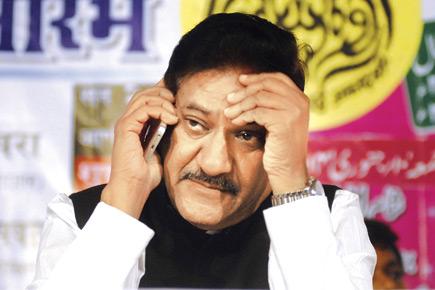Irked over an order that takes away their powers to transfer government employees, ministers forced chief minister to stay its implementation

The impending Lok Sabha election results, it seems, have made ministers of the Congress-led state government a little too protective of their authority.
ADVERTISEMENT

During the weekly meeting of the state cabinet on Wednesday, almost all ministers were up in arms against the Chief Minister Prithviraj Chavan-led general administration department. File pic
On Wednesday, during the weekly meeting of the state cabinet, almost all ministers were up in arms against the Chief Minister Prithviraj Chavan-led general administration department (GAD). They are worried that an order issued by the department robs them of their power to transfer government employees.
During the ongoing model code of conduct for the LS polls, the state departments have either issued orders to set up establishment boards or are in the process. They are complying with the GAD order issued on January 31, which the ministers were unaware of until their departments started the process.
Put off
The timing, they believe, is all-important, since their powers were to be frozen during the code of conduct. During the cabinet meet, most of them raised objection to the issue. When they were informed that the decision was in adherence to a Supreme Court judgment of October 31, some of them said it was not a diktat but a mere directive.
“Moreover, the state already has its own act for transfers; the boards are not required. The SC could have been informed about it through a review petition,” said a minister. The clamour during the meet lasted for a while, until finally, the CM assured them that he was staying the implementation of the order, and a comprehensive discussion would be held during the next meet.
Meanwhile, the structure of the establishment boards for each department is such that departmental secretaries are heading it along with three other senior officials from the department. The board will recommend postings and transfers of all-category officers to the political head of the department, that is, the minister.
“A point of contention is that the ministers will find it difficult to ignore recommendations of the establishment boards, as any deviation can isolate them during legal scrutiny,” said a senior minister. In other words, ministers will become powerless when it comes to postings.
“If establishment boards become active, government employees will stop making rounds of the minister’s offices to seek special favours,” said a senior officer asking to remain unnamed, and added, “With the state assembly elections due in October, the ministers will not approve such boards because it will deprive them from postings of selective officers during the polls.”
 Subscribe today by clicking the link and stay updated with the latest news!" Click here!
Subscribe today by clicking the link and stay updated with the latest news!" Click here!







